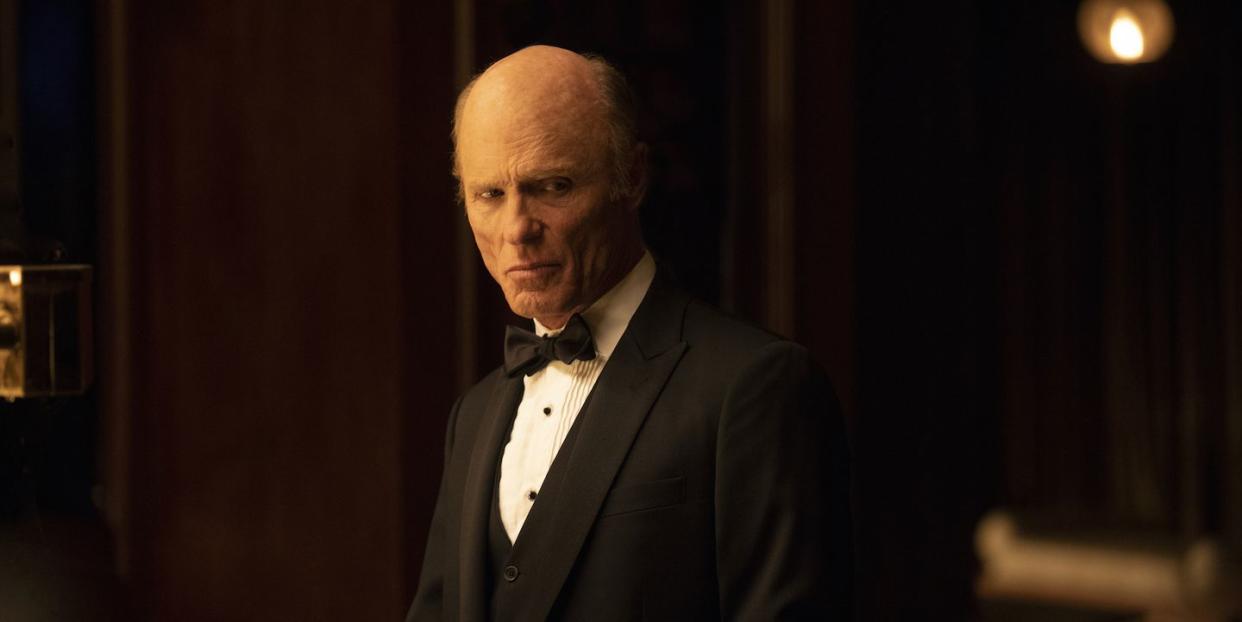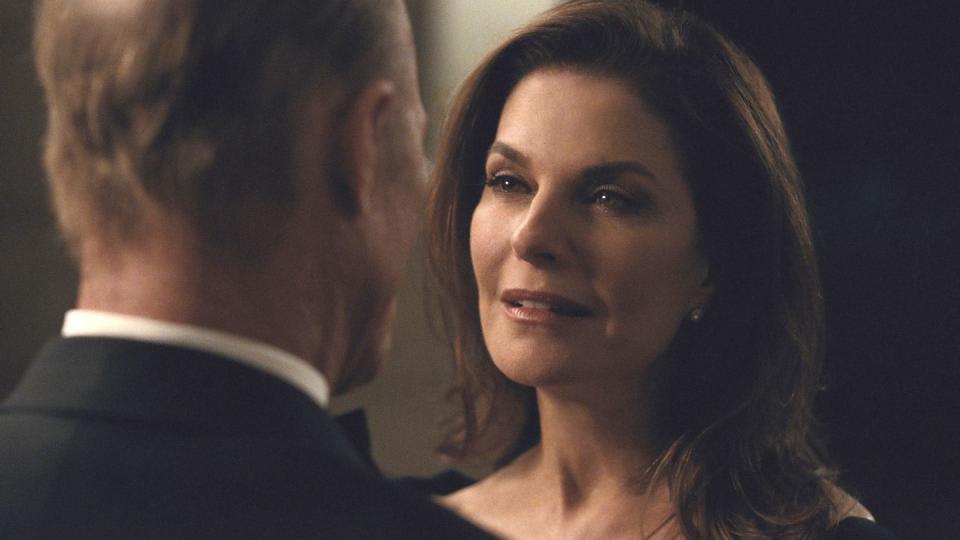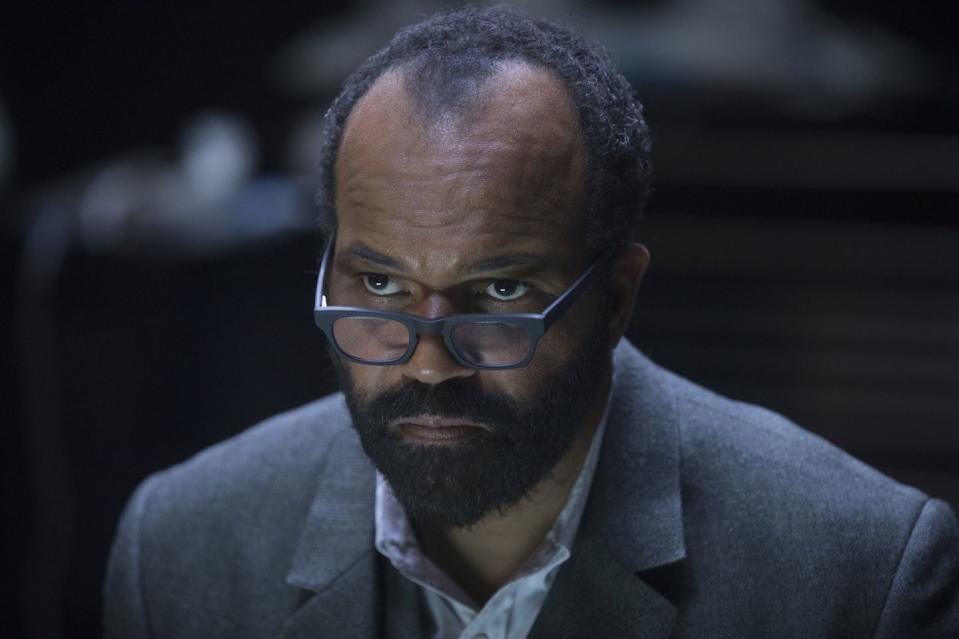Westworld Season 2 Episode 9 Is Fucked Up

Often, the excuse I make for some of Westworld’s failures is that the show takes big swings, which sometimes results in big misses. The risks in this show often result in fun and inventive storytelling devices. Sure, they can occasionally be predictable or annoying or messy or confusing, but you have to respect the scope and complexity of Westworld.
This week, "Vanishing Point" comes at a really inconvenient time in the greater cultural landscape. The world is still reeling from high-profile suicides of Kate Spade and Anthony Bourdain. Experts have been worried about possible copycats, and mental health has been a topic that's been deeply discussed in recent weeks-complete with how the media and entertainment industries depict it. That's why it's very unfortunate that "Vanishing Point" shows two suicides, along with another near-suicide.
What's difficult about these two depictions of suicide is that neither comes with any real examination of mental health. The first is of William's wife (played by Sela Ward). Throughout the show, the death of Juliet has been one of the key mysteries of William's past. And in Episode Nine, this secret is revealed through a series of flashbacks and clunky exposition between William and his daughter Emily. Rather than provide any real depth to the subject, this episode gives a surface-level account of a woman struggling with alcoholism and an unsupportive husband and child. Because we don't know any of this story from the victim's perspective or any details outside of her 30 minutes of screen time, there's very little positive value to be gained from showing the graphic depiction of her body in the bathtub.
The other is at the end of the episode, when Teddy-realizing Dolores has turned him into a monster-shoots himself to be free of the evil they have wrought. This is, of course, a robot that's taking its own life. But it also trivializes suicide as a piece of sci-fi entertainment. It's unfortunate, for sure, and certainly creators Jonathan Nolan and Lisa Joy will regret the timing here.

What doesn't help is that these two suicides are included in an episode that reveals the heart of morally bankrupt characters making a number of baffling decisions through an uneven plot.
As I said before, the scenes between Emily and William are told through some VERY SERIOUS and very unrealistic dialogue. "She refuses to go to rehab, and when we make her ,she refuses to stay," Emily tells William in a flashback. Why does she need to tell him this? Doesn't he know this already? Through these scenes we learn what I'm pretty sure we've known all along, which is that Delos is replicating guest cognition to turn guests into hosts. "That’s what’s in the facility all the guest’s code on a vast server like a Cradle that’s called the Forge," William just flat-out tells Emily.
At one point William asks Emily, "Why in the hell are we going over this?" That's a great question! Now, it's very possible that on some meta-level, some of this bad dialogue in the park is intentional. If Emily is in fact a host, she wouldn't know some of these intimate details-which would make the conversation kind of forced. But that line about rehab was in a flash back; there's no excuse for that. I'm partially hoping that Emily is a host, because at least that would make what happens next less fucked up.
William, thinking he's still part of Dr. Robert Ford's game, kills a bunch of Delos response soldiers, and then kills his own daughter. After that, he rides into the plains and points a gun at his own head. What is this darkness inside William? Is it the inherent evil of men? Or is it that he's actually a host? Neither answer is particularly exciting. At least if William were a robot, that would somewhat explain the stupid writing of his cornerstone (the death of his wife) and the dumb flashbacks that went with it. Instead of killing himself, he starts digging into his own arm to see if he's also a robot.

He probably is! I mean, how is it he's been shot like 10 times and A) hasn't been bleeding, and B) just got back up, disposed of a bunch of soldiers, and is now riding a horse?
Elsewhere, Robert Ford is all over the place acting like a real nutjob. In the real world, he talks to William at his party-where I guess Ford was just sitting alone wishing he was playing with this robots. Ford gives William his full profile from Westworld, which reveals all the horrible shit the guy did in the park. This, we can assume, is what causes Juliet to commit suicide. Again, this is unfortunate for a number of reasons, including that it's a lazy and predictable moment in the show-especially for a show that's neither lazy nor predictable.
Ford is also invading Bernard's mind, telling him to kill Elsie. And thankfully, instead of killing one of the only good characters in this show, Bernard hacks into his own brain and deletes Ford. Maeve is still all messed up on a table in the lab, and she's visited by Ford, who tells her she was his favorite and that he gave her a path to escape, but she chose to return to save her daughter.
Dolores and Teddy don't do too much this week. They have a shootout with Ghost Nation (a twisted cowboys-and-indians scenario) that shows two different paths for transcendence. Dolores is searching for the Valley Beyond through blood, while Ghost Nation seeks a spiritual path. After that is when Teddy shoots himself, in a tragic and disappointing ending to a tragic and disappointing episode. (And I hate to say it, but this brings our Official Teddy Death Count™ to six.) What follows will be the big flood, where this season started.
It's a tough episode to watch for many reasons, and as the humans and robots seek their redemption, let's hope Westworld can also redeem itself in next week's Season Two finale.
You Might Also Like

